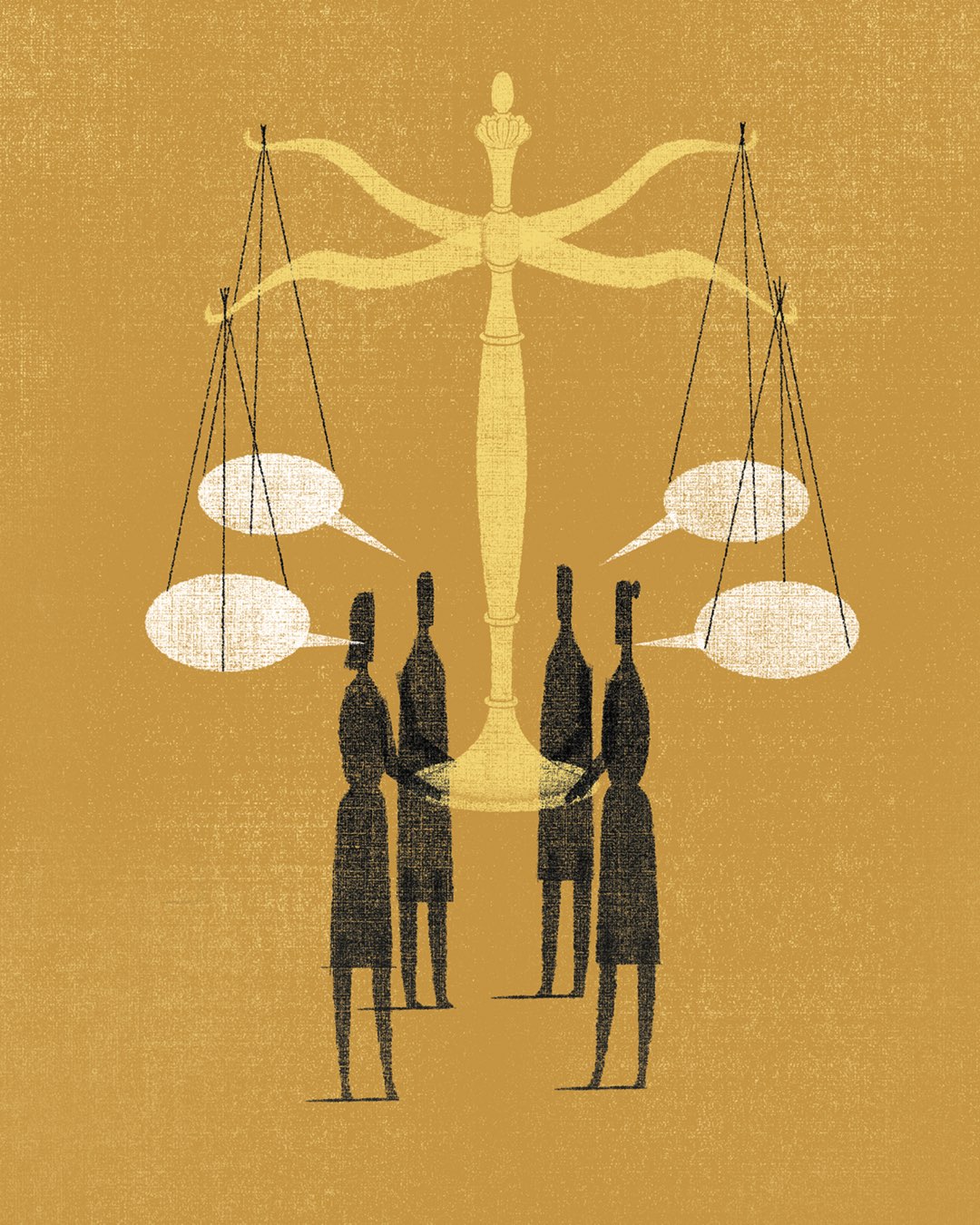A Case-by-Case Basis
Even before Villanova Law Professor Steven L. Chanenson, JD, was named to the Pennsylvania Commission on Sentencing, he envisioned creating a workshop that would bring together sitting judges, practicing lawyers, criminal justice experts and law students to debate the sentencing of redacted, real-life cases. Participants would read materials about the cases, including the police reports and court transcripts. They would then craft and be ready to explain their own sentencing judgments ahead of the workshop.
This distinctive 360-degree legal experience, adapted from programs at Yale and Minnesota Universities, would consider the complicated questions like why similar criminal cases could result in one defendant serving time on probation or in jail and another a stint in state prison.
The result of Chanenson’s vision is the Villanova Sentencing Workshop, which entered its 17th year this spring. A nationally recognized criminal sentencing expert, Chanenson runs the workshop alongside Mark Bergstrom, adjunct professor at Villanova Law and executive director of the Pennsylvania Commission on Sentencing, which works to create sentencing guidelines for felony and misdemeanor crimes in the state. Villanova Law students enjoy a nontraditional classroom experience while Pennsylvania judges receive continuing judicial education credit.
“It’s one of the very few workshops on this topic in the country and has a very high reputation across the Commonwealth,” Bergstrom says.
Offered in conjunction with the Commission and the Administrative Office of the Pennsylvania Courts, the workshop is held at the Inn at Villanova over two long weekends. It typically starts with comparatively simple cases, often involving drugs or theft, before delving into more serious cases. In the evenings, experts on sentencing discuss topics like risk assessment and the proper role of prisons. The experience gives students the opportunity to learn about all the factors that affect sentencing decisions and explore potential careers in practicing criminal law.
“In the workshop, often the sentences participants recommend are all over the map, but then you learn how the person arrives at the reasoning. Our model allows all the participants to learn from each other,” Chanenson says.
Each participant brings a unique perspective to the workshop, deepening the discussions. And experienced legal practitioners find that Villanova Law students ask questions that challenge long-held assumptions. “We’ve always done it this way,’ is never the right answer,” says Chanenson.
No wonder some people call the workshop “graduate school for sentencing.”

ILLUSTRATION: JIM FRAZIER
Did You Know?
Appointed by three successive governors of Pennsylvania, Chanenson served as a member of the Commission on Sentencing from 2002 to 2015, including three years as chair. Formed in 1978 to promote an effective, humane and rational sentencing policy across the Commonwealth, the commission is composed of members of Pennsylvania’s House of Representatives and Senate, other Pennsylvania government officials, judges and lawyers.